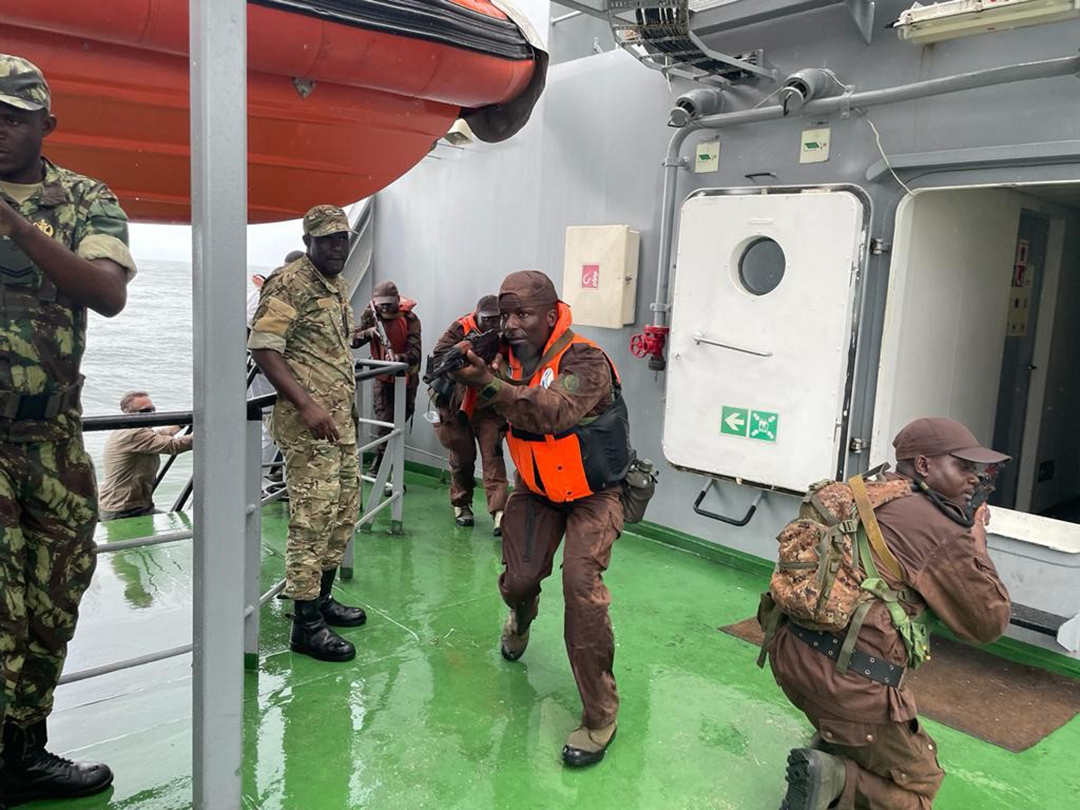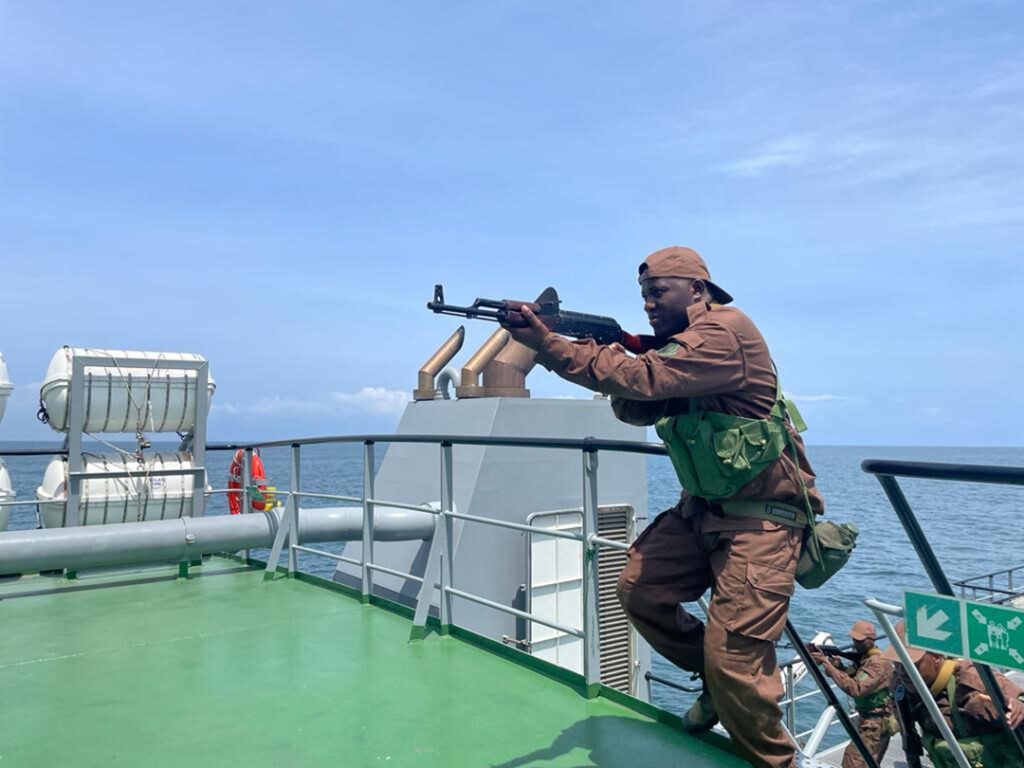ADF STAFF
The inflatable boat zipped across the water toward the waiting ship carrying a half-dozen Angolan Marines. A few minutes later, the Marines were on board the ship and searching for their targets.
The assault was a drill — part of a multiweek U.S. State Department-funded program to train noncommissioned officers (NCOs) in key operations such marksmanship and maritime assault tactics with a constant emphasis on observing human rights. All the training had the goal of equipping the Marines to address illicit activity, including piracy, drug trafficking and illegal fishing along the Angolan coast.
Just over a dozen Angolan Marines known as “Fuzileiros” took part in the training conducted in partnership with the U.S. Marine Corps. The program was designed to create a new generation of NCOs who can pass on their training to future Angolan Marines.
“This training will change a lot of our training methods in Angola, especially at the Marine School House,” Fuzileiro 1stSgt. Afonso Silvano told ADF. Silvano was among the NCOs who graduated with honors from the course on in mid-March.
“This training builds the relationship between the U.S. Marine Corps, U.S. Navy and Angola Marines/Navy to cooperate in the Atlantic-Africa maritime domain,” U.S. Maj. Vic Sanceda told ADF. “[It] supports the enforcement of maritime law and the protection of maritime commerce.”

Angola sits at the southern end of the Gulf of Guinea and is part of the Yaoundé Code of Conduct, which commits the country to fight transnational crime in its territorial waters. That list includes piracy and other illegal maritime activity.
Like other countries along the Gulf of Guinea, Angola confronts challenges from illegal activity along its coasts.
As recently as January 23, two robbers boarded an anchored boat and stole the ship’s equipment before escaping, according to International Commercial Crime Services (ICC), which tracks maritime crimes around the world. In 2021, ICC reported three robberies of anchored ships at the port in Luanda.
The training program was designed to help the Angolan Marines meet their responsibilities in the maritime environment and pass that knowledge along to their colleagues and future Marines without U.S. assistance.

The training was broken into four phases:
- Train the Trainer: basic techniques of instruction with emphasis on public speaking, classroom management, risk assessments, and the importance of scenario-based training.
- Human Rights/Medical/Leadership/Planning: fundamentals of human rights and the need to apply them during all operations to protect civilians; included basic first aid and battlefield medicine, along with the military decision-making process.
- Marksmanship and Tactical Techniques Procedures: live-fire marksmanship training and maritime tactics, building on the foundation of preceding courses; included battle drills, care under fire, close quarters combat, searching techniques and force protection.
- Maritime Operations: seven days of training to operate around water, board vessels at sea and perform close-quarter combat.
During the final training session, the Angolan Marines boarded two inflatable boats and raced across the coastal waters to a ship waiting offshore. During the training assault, NCOs boarded the ship and performed a search while staying ready for close-quarter combat, if needed.
Fuzileiro 2nd Sgt. Luis Ussange Da Silva said the program provided trainees with important skills for planning and executing their own training missions.
“This training will change us because now we have other ways of doing things such as short- and long-term plans, and this will also help us a lot on planning and executing the classes,” Da Silva said. “Being trainers now, our main duties will be using all we learned in the next classes.”

